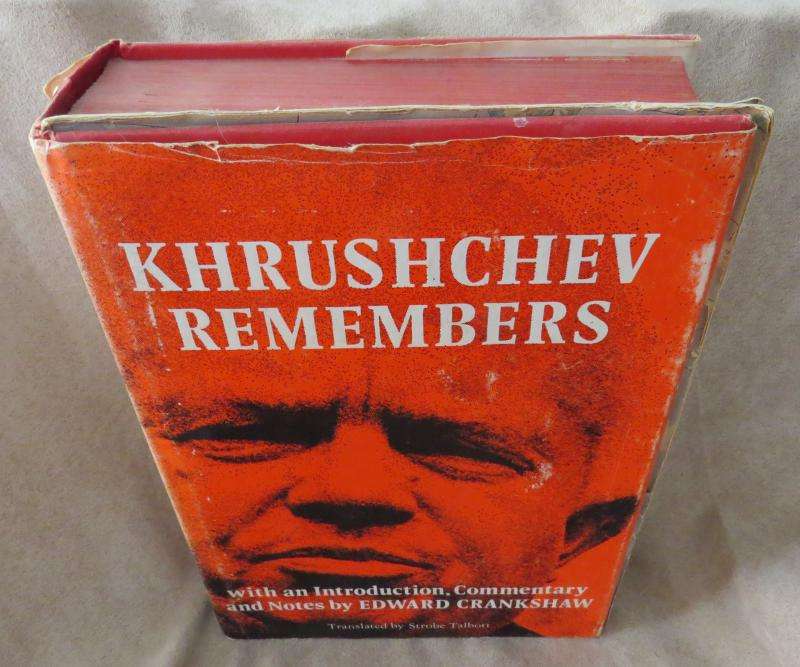
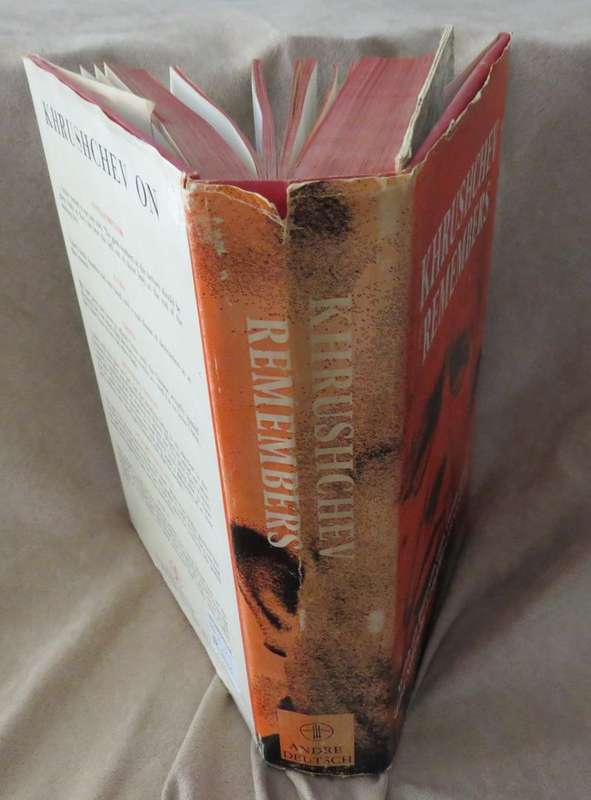
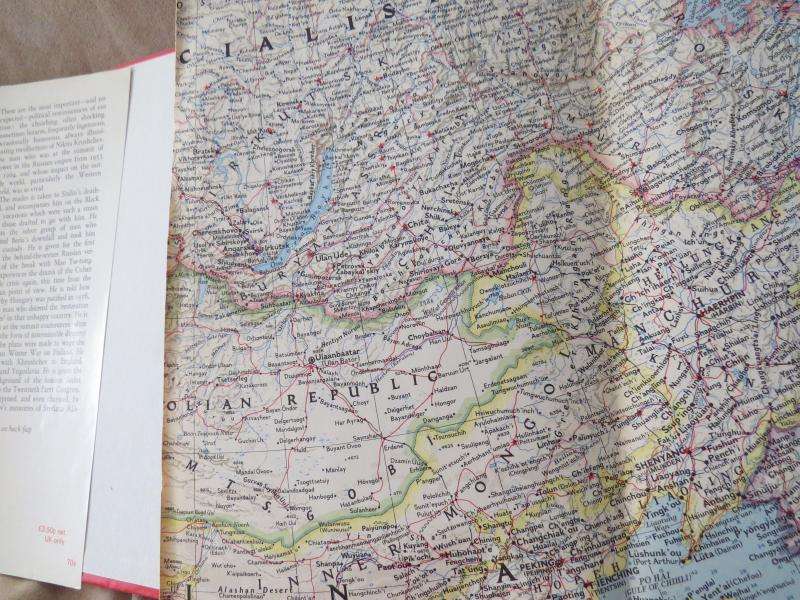
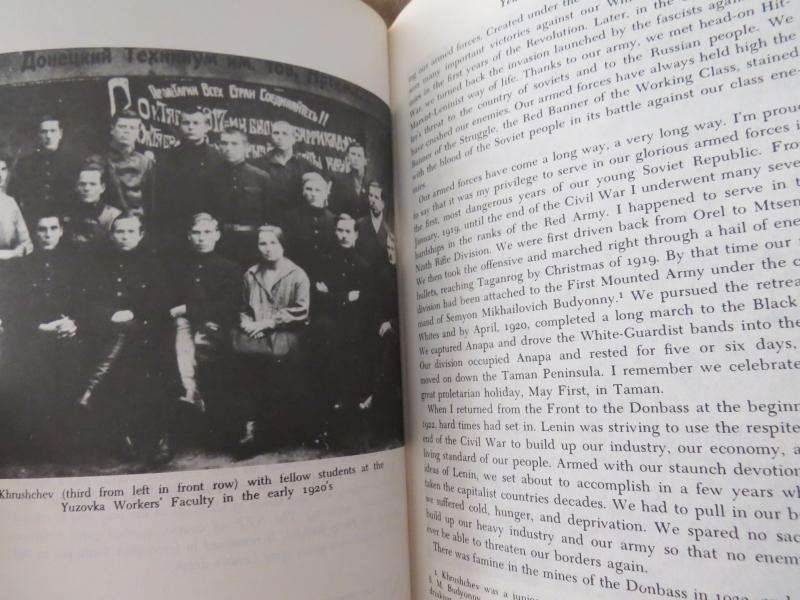
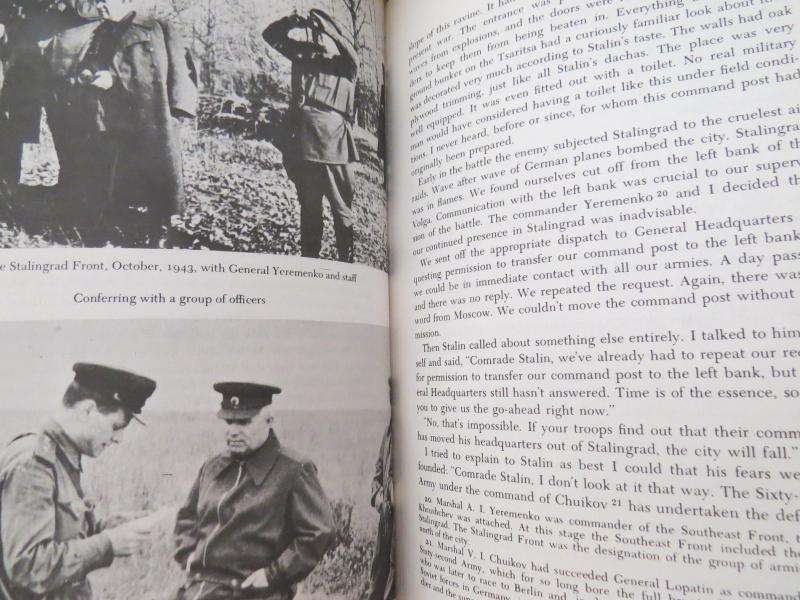





Khrushchev Remembers – Nikita Khrushchev, Edward Crankshaw, Strobe Talbott
Check my rate
| Main centres: | 1-3 business days |
| Regional areas: | 3-4 business days |
| Remote areas: | 3-5 business days |










| Main centres: | 1-3 business days |
| Regional areas: | 3-4 business days |
| Remote areas: | 3-5 business days |
Condition: Book good, one name. DJ good but with edge wear and a few closed tears.
Format: Hardcover with DJ
Published: 1971 (André Deutsch)
Pages: 639
ISBN:
**Includes big folded map of USSR**
These are the most important and unexpected political reminiscences of our time : the absorbing, often shocking, sometimes bizarre, frequently ingenuous, occasionally humorous, always illuminating recollections of Nikita Krushchev, the man who was at the summit of power in the Russian empire from 1953 to 1964, and whose impact on the out-side world, particularly the Western world, was so vivid.
The reader is taken to Stalins death-bed, and accompanies him on the Black Sea vacations which were such a strain for those drafted to go with him. He meets the select group of men who plotted Berias downfall and took him into custody. He is given for the first time the behind-the-scenes Russian version of the break with Mao Tse-tung. He experiences the drama of the Cuban missile crisis again, this time from the Russian point of view. He is told how and why Hungary was pacified in 1956, by the man who decreed the restoration of order in that unhappy country. He is present at the summit conferences (often taking the form of interminable dinners) when the plans were made to wage the disastrous Winter War on Finland. He travels with Khrushchev to England, Geneva and Yugoslavia. He is given the full background of the famous Secret Speech to the Twentieth Party Congress. He is surprised, and even charmed, by Krushchevs memories of Svetlana Alliluyeva.
Apart from all this, and much more, this book gives unexpected insights into the minds and motives, strengths and weaknesses, of many of Khrushchevs colleagues, including Stalin, Bulganin, Beria, Voroshilov, Malenkov, Zhukov, Molotov, Mikoyan and Kaganovich. The forthright earthiness which distinguished Nikita Khrushchevs utterances and appearances, putting him across to the Western world as a very human, if enigmatic, personality, is strikingly evident in the style of these reminiscences. It is a story which only he could tell, and he tells it admirably.
Edward Crankshaw, who has provided a general introduction, commentary and notes, has been closely identified with Russian affairs for the past twenty-five years. He has frequently visited Russia and Eastern Europe, until 1968 princi-pally as correspondent for The Observer. In addition to a biography of Khrushchev published in 1966, he is the author of Cracks in the Kremlin Wall, Russia Without Stalin and Khrushchev.
Strobe Talbott, who translated and edited the book, is a graduate of Yale and at present a Rhodes Scholar at Oxford, where he is working on an advanced degree in nineteenth- and twentieth-century literature.